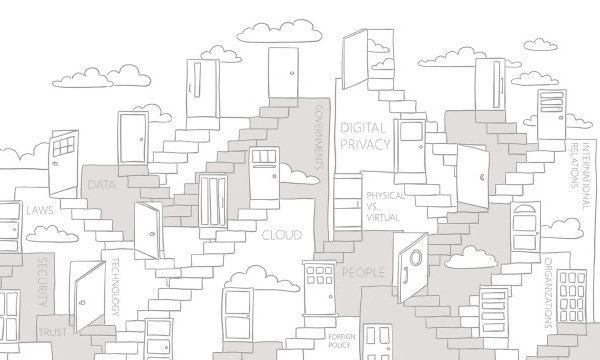Apple was one of more than 50 private companies and trade associations to sign amicus briefs in support of Microsoft on Monday as the Redmond, Wash., company continues an ongoing court battle with the U.S. government over customer data privacy protections.

Source: Microsoft
Microsoft announced 28 technology and media companies, 23 trade and advocacy groups and 35 computer scientists signed ten briefs in support of its fight to keep customer emails stored on international servers protected from U.S. government agency warrants.
Alongside Apple, prominent tech companies on the list of signatories (PDF link)include Amazon, AT&T, Cisco, eBay, HP, Rackspace and Verizon, along with the U.S. Chamber of Commerce and Electronic Frontier Foundation.
Microsoft is arguing against a U.S. government request to release emails currently stored on servers outside the country. According to court filings, Microsoft was issued a search warrant relating to a drug investigation last year, compelling the company hand over customer data from an Outlook email account located in Ireland.
Instead of complying, Microsoft appealed to keep the data private as it resides only on a server in Dublin. As such, U.S. government agencies do not have jurisdiction and should be required to go through international channels, the company argues.
At issue is the Electronic Communications Privacy Act (ECPA), which allows federal and local law enforcement agencies to demand digital records, such as email correspondence, with appropriately served warrants. Microsoft argues Congress did not include stipulations in ECPA that would allow seizures outside the U.S.
If ECPA is interpreted to allow for extraterritorial jurisdiction, it may hurt cloud-based businesses located within the U.S., as international customers would be unwilling to sign up for such services. Further, such a distinction could lead to identical requests from foreign agencies for data owned by U.S. citizens. A lower court previously ruled against Microsoft, rejecting the warrant as illegal. The company has since taken the argument to the United States Court of Appeals for the Second Circuit.
Digital privacy has become a hot topic in tech as Apple and other industry giants look to increase transparency over government data requests. Most recently, Apple has been in the crosshairs of law enforcement agencies for implementing aggressive customer security in iOS 8 that makes it impossible to extract data from locked iPhones and iPads.


